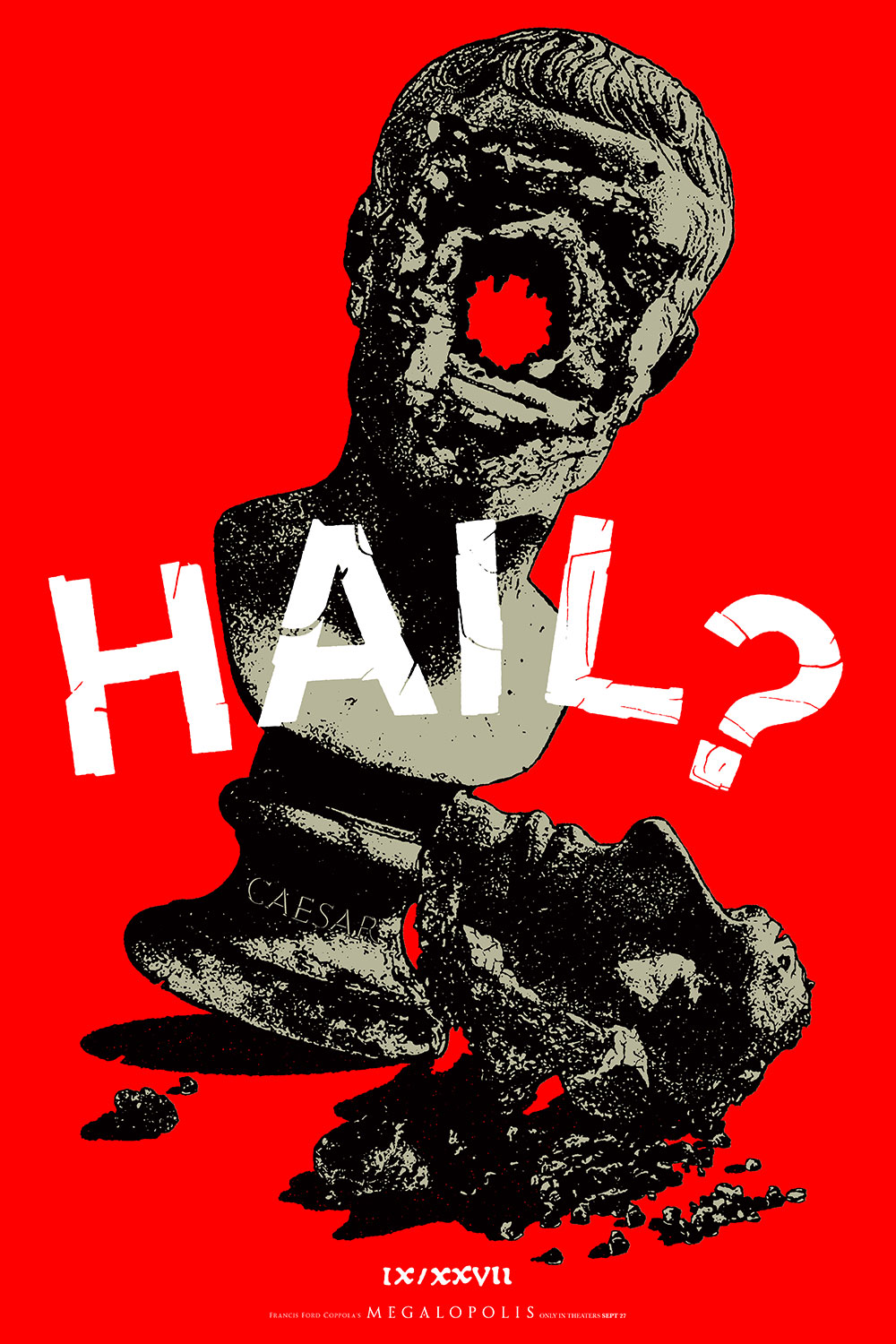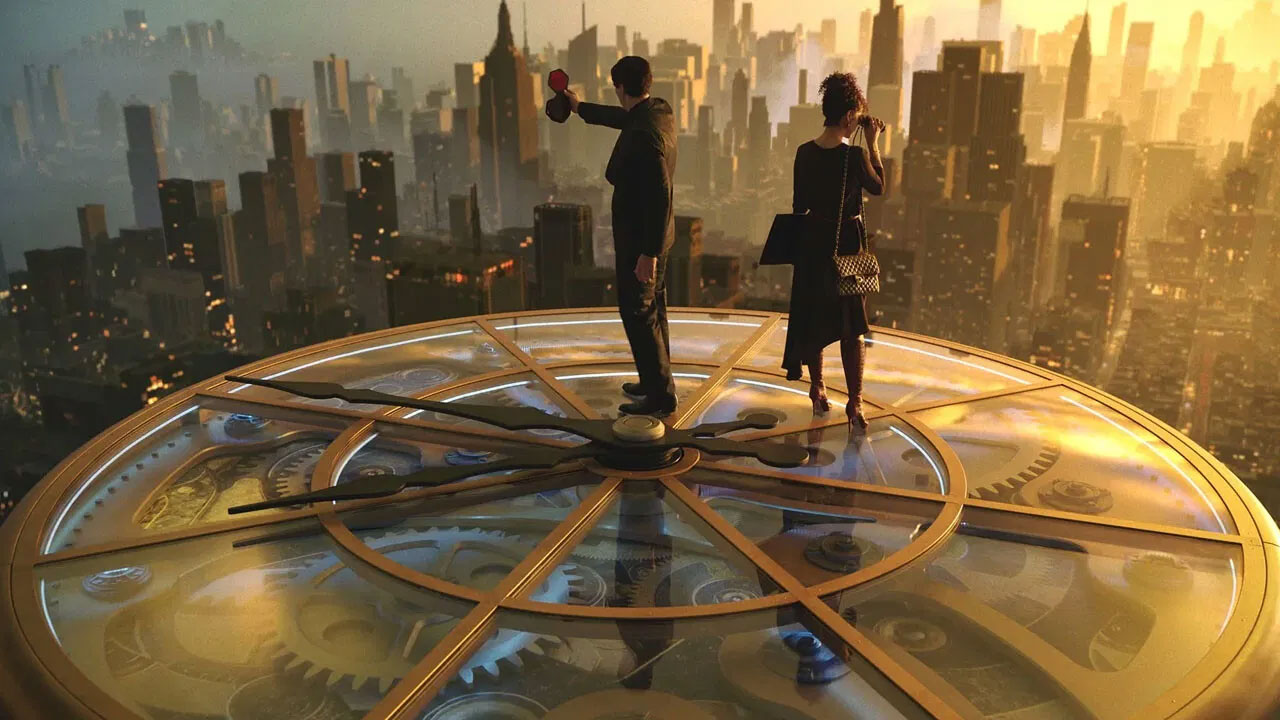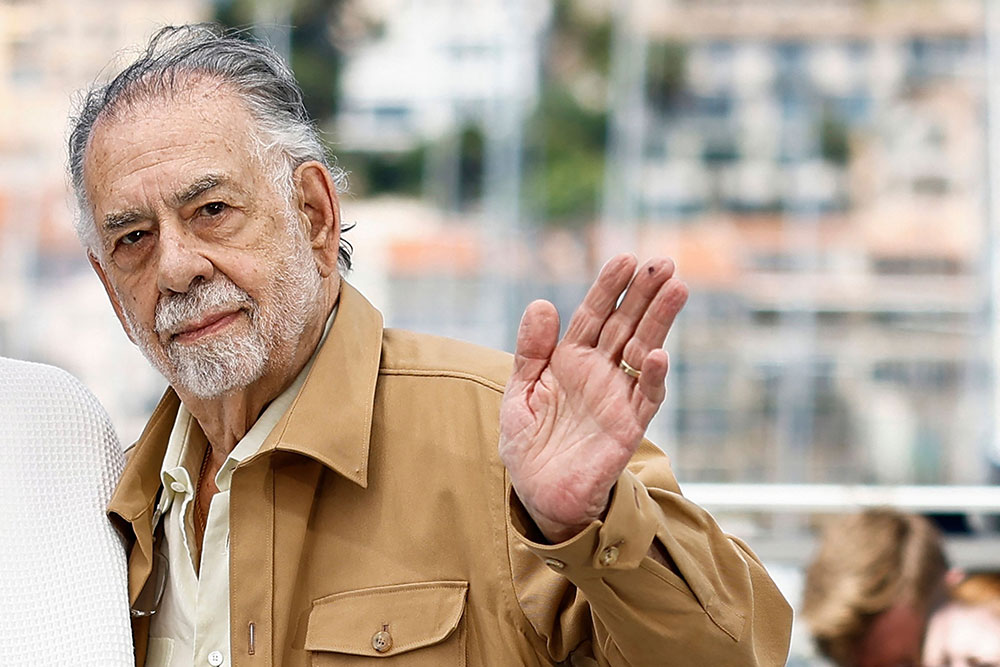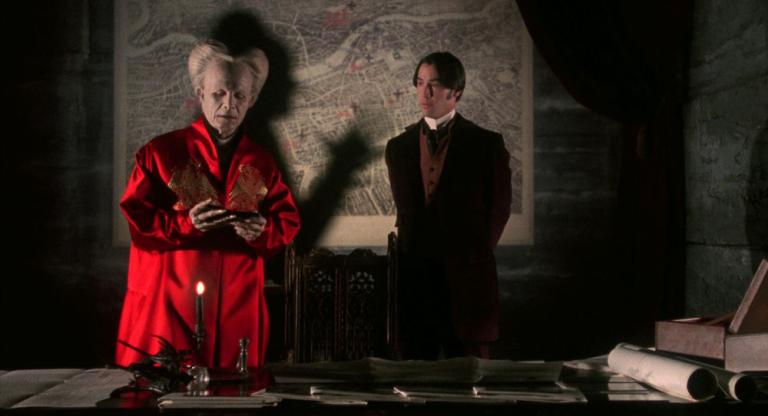Francis Ford Coppola hardly needs an introduction. As the lion of the New Hollywood, the outline of his career is well known. From work with Roger Corman to his first films in the 1960s, and then his Oscar for the screenplay of Patton (1970) and the unprecedented worldwide success of The Godfather in 1972, he established a career against the Hollywood grain that also defines an epoch in film history. By 1969 he had already set up American Zoetrope, his own company away from Hollywood. The risks he took to make Apocalypse Now (1979) outside the studios branded him as a rebel, and as a thorn in the side of an industry more comfortable with low-risk, crowd-pleasing blockbusters than expensive, original visions.
Coppola, now 85, has made fourteen features since Apocalypse Now. He and his late wife Eleanor, a filmmaker in her own right, founded a moviemaking dynasty that includes their children Sofia and Roman. Many of his 1980s and ‘90s films have been re-evaluated as he has released his own, more complete versions of them to theaters in recent years, and his successful winery has done so well he used it to fund Megalopolis. It’s his first new film in thirteen years, a futuristic epic starring Adam Driver as Cesar Catalina, principle architect of the city of New Rome and head of its Design Authority. Megalopolis reflects an entire 20th-century history of urban architecture and the way it has been depicted in films, yet it looks like nothing else that has come before.
The film opened in cineplexes, not arthouses, across the country on September 27. Box office has been low, and reviews have been damning, and glorious in their confusion. Some reviews have hailed Megalopolis as a masterpiece, but more have been like the one in Entertainment Weekly that called the film “bloated and unforgivably dull.”
At 138 minutes the film is far from bloated, just as it is far from dull. A more eventful movie you will not see this year. Megalopolis is, in fact, amazing. What’s more, after Coppola’s years of planning and struggle to make it, it’s amazing it even exists. The director and I spoke over Zoom, with a time limit of 15 minutes, which Coppola waved. Our conversation has been edited for length and clarity.

A.S. Hamrah: I guess in discussing Megalopolis, we should start how the movie starts, by asking “What is time?” Megalopolis starts with time stopping. I saw your Cannes press conference in which you were talking about streaming and you said, “We used to call it home video.” It occurred to me when I saw it that one of the differences between streaming and seeing a movie in a theater, like I did yesterday, is that when you're watching something at home, you can stop it and freeze it, as happens in Megalopolis. So when you talk about time in a movie, what is it that you're doing when you stop the film like that?
Francis Ford Coppola: This is a big subject. As you know, I have one foot in theater and one foot in film. It's no big deal to do something like that in a play. When I was doing plays, we would often have actors run in the aisles and deal with the audience. And that is still done. Artists have always controlled time. From the first painting of a gazelle on a cave wall, they were stopping time, and we know that all the arts manipulate time or combine time and space or build time and space. Goethe said that architecture is frozen music. So if you're an artist, you control time. If you're a lawyer, you bill by time, which means it controls you. But time is bigger than that.
When we view human civilization, we can think back a hundred years, or we can think of when our great-grandfathers were alive. But that's small potatoes in terms of time. There's history, which is about, what? 10,000 years? We haven't even had writing for 10,000 years. But we, the Homo sapiens family, have existed about 300,000 years. So it's not really logical that the world we live in now is the best it will ever be. There have been things that may have evolved badly over the last 10,000 years, and what I observe is a world of unfulfilled, unhappy people who live in a place where we spend $8 trillion a year on advertising, which is trying to sell happiness to these unhappy people. In order to be good customers, those people have to be unhappy. I wonder, has the system evolved so that we are kept unhappy?
And this didn’t happen over just the last few years. Things have been going in this direction since men first asserted patriarchy and said, “I am king and you are my slave and you are going to build a monument to me, a monument of self.” My philosophy comes from the idea that maybe, maybe 50,000 years ago, or 40,000 years ago, there were better societies that were more egalitarian, in which we played together and lived together. Women were more important because in the old primitive times, men didn't understand why women had babies. It was a magical thing. So that gave women a tremendous power. I think we lived in a more accommodating, quasi-matriarchy.
ASH: It is a big subject. I wanted to go back to something you brought up, which is the concept of live entertainment, or live theater. You’ve constructed Megalopolis so that there's a segment in it in which someone from the audience—an actor, an usher, or just someone attending the show—can ask the Adam Driver character, Cesar Catalina, a question by speaking to him on the screen. I read that you’d planned to incorporate more live interaction into the film, in which the projectionist would somehow respond to questions from the audience in an automated way. How would that have worked?
FFC: That got a little misunderstood. Originally, there was a section in the film, after the satellite crashes, when suddenly the house lights would go on and a guy would come up to the front with a microphone, as if the audience was going to be told, sorry, we're not going to continue the movie because there has been this calamity.
I knew from my experience of talking to audiences and film students, particularly, that usually they ask you the same questions. I can tell you the five or six questions I'm sure to be asked if I talk to students. So what I did is, I shot a scene of the mayor and Cesar and the mayor's daughter sitting in front of the audience, and I recorded answers to all the questions I thought the audience might ask.
We were going to have a microphone present, or they could have sent their questions using a QR code, and the questions would be answered. This was being helped for me by Amazon, their Alexa division. You're familiar with Alexa. You can say, “Play me some music.” And it'll say, “What kind of music do you want?” You say, “I want Mozart,” then it will ask you which Mozart, and you can say, “Play the Turkish March,” and so on. They were helping me interpret it. So the actors, when you asked Adam Driver or Giancarlo Esposito as Mayor Cicero, you would get a different answer depending on what you asked.
And Amazon thought they would sell more stuff with Alexa than they did, so they discontinued the whole project and I couldn't do it. I had shot the scene with all the answers, but I cut it from the movie. And when Adam saw the cut of the movie, he said, “What happened to the nice section where the audience asked questions?” I said we can't do it. He said, “Why don't we just have one question?” All my actors were wonderful collaborators. So I said we’ll ask the one about should we be afraid of the future? And we did. We can have someone go up and ask it. And that’s how that idea came about.
ASH: Is this the kind of idea that you discuss in your book, Live Cinema and Its Techniques (2017)? I’m sorry to say I haven’t read it.
FFC: That's really more about doing a whole movie that looks like a movie, and has the sensibility of a movie, but is done live. You know when you watch a movie on television, in about two seconds you can tell that it’s not television, it's a movie, right? You can tell from the way it’s shot, from the way it it's structured, and so on. My book is about making a real movie that you would see and say, That's a movie, but doing it live. So that performance, if I live long enough, that's going to be the last movie I make.
ASH: I look forward to seeing that on TV.
FFC: No, no, it won't be on TV. It will be in movie theaters, but you will be looking at something that's coming to you live. It will be an actual movie performed live. And it won’t look like theater being broadcast in a movie house. The audience will see a movie.
ASH: Oh, I see, I get it. Okay, that's very interesting. I want to ask you about the reception of Megalopolis. I'm really shocked by the vindictiveness of the trades, the Penske press. It’s just so incredible to me how mean they’ve been in the media, how against the film.
FFC: It's not Penske’s fault specifically. What we're witnessing is sad—let's face it. I love journalism. I think we all do. We all love those movies we saw when we were kids about newspapermen. But unfortunately, we are alive at a time when two wonderful institutions are dying. One is journalism, and one the studio system. And no one wants them to die. But the times are finished with them. They have no way to economically be sustainable. So in this area of journalism, they're starting to make stories that are clickbait and that use unknown sources, where you start seeing unknown sources say that Francis is a jerk. I mean, Francis may be a jerk. But to not say who said it is basically the death knell of the press. As far as the studios go, the studios have been bought and sold so many times that everyone is loaded with debt. So the people running the movie business are really being paid a lot of money to make sure they make their debt payments. And I think journalism is going to be reborn and also, in some wonderful way, some sort of film system, when the ones we have now are gone.
ASH: I was wondering if you’ve noticed the irony that the reaction to Megalopolis is actually inscribed in the film itself? It's like the press took the bait. The same things that happened when the film was released happen in the film to Cesar Catalina. He's excoriated for his project, called a terrible person and a fool, there's a sex scandal, etc.
FFC: I look at it this way: whenever you really do something new, it always invites controversy, because people are not really comfortable with freedom. They want to have real circumscribed borders, and they want you to know that they feel more comfortable that way. I mean, I understand it a little bit. Do you have kids?
ASH: I don't.
FFC: Well, if you know kids, if you ever try to give a kid a taste of some sort of grown-up food, they think it is weird food. At first bite they grimace at it. They hate it and they spit it out. Then they love it later in their life, when they start to develop adult tastes. Now, I'm trying to show people a semblance of what I think cinema is free to do, and what I think I'm free to do. But it doesn't play by the rules. And consequently, it's new, and it makes people uncomfortable. And so they attack it. They say—you know, people are literally saying it about this movie—they say that this is the absolute worst film ever made. And a few have said that it’s the best. So it's somewhere in the middle. And you don’t know. I mean, I can’t know.
ASH: I loved it in the movie when Adam Driver's on the red carpet, and he's mocking the press about the questions they ask about his project, and he says to them, imitating their questions, “What kind of pizza place is it going to be?”
FFC: To me that was apt for the kind of questions that get asked of people, these obvious questions they already know the answer to. In the movie, when they say to Julia, Do you like girls? And Adam says, Everybody likes girls, right? Girls are wonderful. We love girls.
ASH: What you were saying about debt is very interesting. This idea is central to the film, but kind of in an indirect way. When you have the banker character, Crassus, played by Jon Voight—who's this kind of, you know, older man who's slipping into dementia—when you have him totally renounce what he was doing with debt, you know, it seemed kind of Biden-esque.
FFC: That moment is really sort of a gag, because there's no one who's thought of worse from Ancient Rome than Crassus. He made his money by buying houses that were on fire, and he had the control of the fire department. And Crassus is the guy who crucified Spartacus. He was known as the richest man in Rome, not a nice guy. So for him to say, I'll be loved forever is, to me, funny.
ASH: Voight’s performance is great. The actors really seem to be enjoying themselves in this film.
FFC: They were wonderful collaborators. And as you know, they're all different. I mean, they are on all sides politically, and we have Shia LaBeouf, so talented, but he's always in trouble. So we had a collection of very different people, politically and in terms of their personal lives, but they really work together wonderfully. And we were all joined in the making of a movie about what we human beings could do. If we want to solve the problems we're facing, we have to band together. It's too beautiful to live here, to let it get ruined needlessly.
ASH: I agree. Of course. Wait, your publicist is telling me on the chat that our time is up.
FFC: Ha, well, I control the time. I'll give you some more.
ASH: Okay, great. I've noticed you've mentioned debt a lot in your comments to the press about the film, too. How should we counter this problem? Everything seems to be controlled to the point where no one can thrive because everyone owes so much money.
FFC: But that's an illusion. It's not really true. And in my opinion, we are kept unhappy, like the other issue I mentioned, just to talk around it a second, when I say human beings are geniuses. I mean, it's obvious that we are. There's no other creature we know that can chart the genome and splice genes and send cameras to Mars and do particle system systems to make energy. I mean, obviously we're geniuses. You can't argue that. But we do bad things. The why we do bad things is another thing. But do you accept that we're geniuses? Because they're not telling us we’re geniuses. When our politicians get on the air, they say, Those people from those other countries are animals. They're terrible. And that's not true. All human beings are one family, and we're a family of geniuses. Our children are potential Mozarts and Einsteins and Archimedes.
I mean, this is true, so if it's true, that means there's no problem that we can't solve if we just look at it and use our genius to solve it. We can solve the problems of the climate. We can solve taking care of people and that no babies will die, whether it's Ukraine or Palestine. It's absolutely absurd, and the only reason they can keep doing it is because they don't allow us to say we're geniuses. They say, You can't be that. There's a line in the film, you know, we're in need of a great debate about the future. We need everyone in the world to take part in that debate. And we need every question to be able to be asked. That's all I'm saying. I'm not saying anything other than that. I'm saying it's time to talk about it, and to talk about it with everybody. I mean, presidential candidates are calling people animals...
ASH: Yesterday Donald Trump called Kamala Harris mentally impaired and said she was born that way.
FFC: Yes, shocking, but poor Donald Trump is a victim of his own ambition. He's what's called, in history, a demagogue. A demagogue is someone who points to other people with hatred, and by doing it gets power. There's been many more like him, and there's many reasons why they exist, but now the stakes are too high. We're in need of a great debate about the future, and we want all human beings to talk about it, because there's no problem we can't solve. That's what the movie is saying.
ASH: Can I ask you a question about the past?
FFC: Absolutely.

ASH: Megalopolis is a strange combination, I thought, of Weimar, like in Fritz Lang’s late German films, and of Fellini, you know, at Cinecittà . . .
FFC: What a compliment. Gee. Thank you. Well, let me tell you, I love the cinema. I don't love my cinema, necessarily. I love the cinema. I don't consider myself a big deal. I just want to be part of it. I want to be part of it because I think the cinema has a way to have a compelling message, to go out and to start to help people understand. The role of life is to illuminate life so that others understand it a little better, and understand that you're being duped by people in worlds where they're so closed in their own wealth and power that they're not seeing the big picture. The big picture is that we are a great family of human beings. It's just like what the movie says at the end. I mean, those critics who I read who said this is the worst picture ever made. Yeah, I saw some of those reviews. Well. I mean, is it the worst picture ever made? Wasn't there a worse one? Or is this really the worst one? Or are you afraid of this movie?
ASH: I do think there are elements in the press who are afraid of it. I think it's a threat to them. And I think that's related to the debt that you talk about when you talk about the studios. They don't want someone to make a film that's outside of a system in which artists are part of the debt they owe.
FFC: Absolutely. But look, we must care more about the next generations. I'm a great grandfather, and you may not have kids, but I’m sure you appreciate how wonderful they are, but they’re innocent and they're going to harvest all the trouble that these people are going to leave to them. So I say, Let's celebrate the future with our children and leave them a world that is beautiful.
ASH: The film ends with the baby as the only element of the last shot that's moving.
FFC: Because the thing the characters in the film care about is the future. Their child is the future. The movie starts with a guy stopping time. Time has stopped at half dozen places in the movie, and it's appropriate that it stops at the end, but with the children.
That's why I did the Pledge of Allegiance at the end. I remember doing the Pledge of Allegiance to America as a kid, and now it's time to pledge allegiance to our human family and to all the creatures that we have to take care of, and to this Earth, and to the promise that we're going to educate the children, all the children, and take care of them. We're going to preserve the future. I'm very sincere about it. My big dream on this movie is not anything other than what my biggest happiness would be. If every New Year's people see this movie, and instead of, when they go home saying I'm going to give up smoking or I'm going to give up eating too much, instead they say, let's talk about the future of this society, the only one available to us, and how can we make it better. Because if they have that conversation, as Cesar says, that is utopia.
ASH: It's funny you mention New Year's. Megalopolis really does have a festival, New Year's Eve party quality. It's a very vibrant, explosive movie, a nighttime movie, but it’s full of joy.
FFC: The fact is that we human beings do our best work when we play, you know, when we play with our kids, and when we invent things for them. How do you think the wheel got invented? No one knows, but I know they used to move big things around in ancient times on trees, logs. And they were playing with their kids, and they made a toy the kid could pull, and it had some little twigs, but it didn’t really work. So someone made little wheels on a little toy cart, and a kid could pull it. And then someone looked at that, said let's make a big one. We do our greatest work, we human beings, when we play together. So let's not be so serious. Let's play together and be joyous together, and it will invent the wonderful future.
ASH: The zoetrope is like that, a child’s toy that leads to cinema.
FFC: Yes, or the steam engine. The Greeks had a steam engine that spun around, but it was for kids. They didn't think to harness it to anything. Out of play, we'll solve all the problems that we're facing. That's what I believe.
ASH: I hope that happens. And I hope that Megalopolis becomes the New Year's Eve movie, like It's a Wonderful Life is the Christmas movie.
FFC: You know, that would make me happy, more than any happiness, that it could be the New Year's movie, and people would talk that day about how to make the world better. I won’t be alive to see it, but if I were, I would die with a smile on my face.
ASH: Well, don't die too soon.
FFC: Thank you. Good luck to you. Bye bye.

Megalopolis is now screening in theaters across the country.




